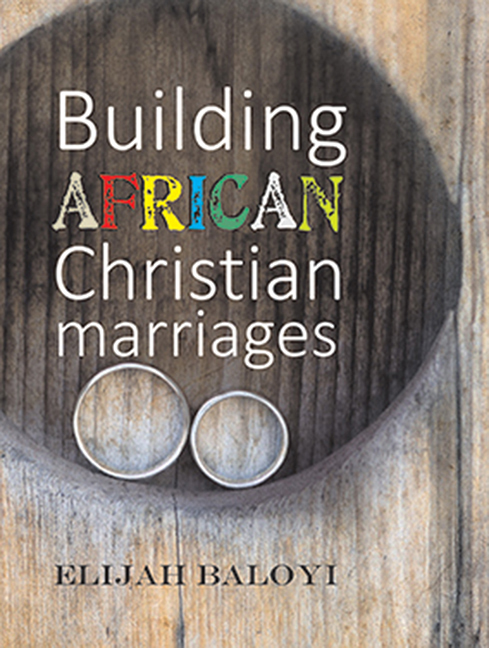Book contents
- Frontmatter
- Dedication
- Contents
- Foreword
- Preface
- Acknowledgements
- Chapter 1 Traditional obstacles in young African marriages
- Chapter 2 Excessive family intervention in African marriages
- Chapter 3 The influence of lobolo on the African marriage union
- Chapter 4 The negative influence of infertility on young African marriages
- Chapter 5 Some biblical teachings about marriage
- Chapter 6 Conclusion
- Appendix A comparison of the African and the biblical perspective on marriage
- References
- Index
Chapter 4 - The negative influence of infertility on young African marriages
Published online by Cambridge University Press: 14 February 2020
- Frontmatter
- Dedication
- Contents
- Foreword
- Preface
- Acknowledgements
- Chapter 1 Traditional obstacles in young African marriages
- Chapter 2 Excessive family intervention in African marriages
- Chapter 3 The influence of lobolo on the African marriage union
- Chapter 4 The negative influence of infertility on young African marriages
- Chapter 5 Some biblical teachings about marriage
- Chapter 6 Conclusion
- Appendix A comparison of the African and the biblical perspective on marriage
- References
- Index
Summary
Introduction
According to many African cultures, every successful marriage is traditionally expected to produce children, hence childless marriages are not considered normal (Baloyi 2009:2). Kalu (2005:533) views procreation as a very important issue in the African concept of marriage. Infertility has always been regarded as an affliction and a curse often leading to polygamy. It used to be accepted amongst some people in Africa that the parents of the infertile woman in a marriage should provide a second wife (‘nhlantswa’ in xiTsonga) for the purpose of procreation. In biblical times, Abraham married a second wife because of Sarah's barrenness (Gen. 16:1–6). The other example in the Bible is that of Rachel and Zilpah (Gen. 28:30). The importance of childbearing is also clear from the history of Hannah, who was taunted by Penninah because of her barrenness (1 Sam. 1:6–8). The same applies in African traditions. That is why the parents of the first wife, if she proved to be infertile, were bound to give a second wife to bear children (Hartman and Boonzaaier, 1998:107). This chapter will focus on the role played by infertility in choosing a life partner.
Historical background
Traditionally, the close relationship between lobolo and childbearing gave rise to problems if the wife showed signs of infertility. Infertility means that one is unable to conceive a baby. This so-called ‘cause-and-effect’ order is exemplified by the African saying ‘cattle beget children’ (Burman 1991:36). According to Nhlapo (1991:138), ‘the need to procreate leads to a complex set of rules relating to barrenness. The surrogate, for instance, covers the situation where a younger sister is required to take the place of a wife who is unable to produce children.’ It is also emphasised that ‘provision of a seed-bearer in cases where the wife is barren is a matter of must’ (Hartman and Boonzaaier 1998:107). Zinn and Eitzen (1990:288) also remarked that marriages were understood and expected to result in children.
The other important point is the association of childbearing with life after death. In other words, the capability to procreate has an effect on our future life. Turaki (1999:107) goes so far as to say that ‘begetting children guarantees eternal life.
- Type
- Chapter
- Information
- Building African Christian Marriages , pp. 35 - 42Publisher: University of South AfricaPrint publication year: 2013



